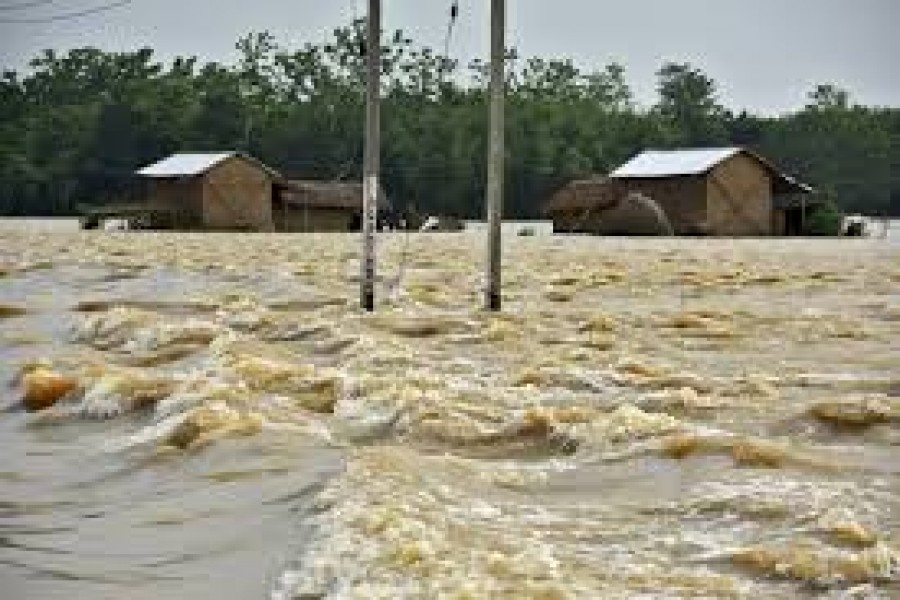
Published :
Updated :

A noteworthy victim of climate change, Bangladesh is likely to incur losses worth US$ 2.2 billion on average per year, which is equivalent to 1.5 per cent of its gross domestic product (GDP), due to floods, according to a keynote presentation.
Besides, global warming will also cause economic losses for the country, as with the current rate, annual average temperature in Bangladesh will increase by 0.94 per cent within 2030.
In such circumstances, the upcoming COP26 conference is important for Bangladesh along with other climate vulnerable countries to raise their voice, the keynote said.
The paper was presented at CPD-ICCCAD Virtual Dialogue on 'Bangladesh's Expectations from COP26' jointly organised by the Centre for Policy Dialogue (CPD) and International Centre for Climate Change and Development (ICCCAD) on Sunday.
Special Envoy, Climate Vulnerable Forum Presidency of Bangladesh Md Abul Kalam Azad joined as the special guest, Ambassador and Head to the Delegation of the European Union to Bangladesh Charles Whiteley joined as the guest of honour.
The CPD Chairman Professor Rehman Sobhan chaired the dialogue while Development Director, FCDO Bangladesh, British High Commission Judith Herbertson, the ICCCAD Director Dr Saleemul Huq and CPD Trustees Khushi Kabir spoke at the virtual setting, among others.
Dr Fahmida Khatun, the CPD executive director and Professor Mizan R Khan, deputy director of the ICCCAD presented the keynote. Professor Rehman Sobhan said Bangladesh is a notable victim of global warming for which the country is not liable, rather many developed countries are.
The initiatives taken by Bangladesh alone cannot help improve its climate change impact, he said.
Dr Saleemul Huq said what Bangladesh is going to get from COP26 is a burning question.
He also said, "The global leaders participating in the imminent COP26 will decide whether they will leave a liveable planet for the future generation".
He mentioned along with the government, the country's private sector has a huge role to play for the sake of the environment. According to the keynote, in Bangladesh, annual average temperatures increased by 0.64 per cent in 2018, which was 10.20 times faster than the annual average temperature increase of 0.06 per cent in 1961.
"If the trend of increase in annual average temperature continues, then by 2030 annual average temperature in Bangladesh will increase by 0.94 per cent."
The paper said Bangladesh along with other climate vulnerable countries has specific agendas that reflect the active interests for the climate vulnerable countries.
These countries would try to ensure commitments of major carbon emitting countries to limit carbon emission, and scale up climate funds urgently to support climate vulnerable countries. They will also look to ensure the bigger share of climate funds towards adaptation, finalise the 'Paris Rulebook' to ensure accountability, and establish the mechanism for loss and damage.
The 26th Conference of Parties (COP26) of the United Nations Framework Convention on Climate Change (UNFCCC) will begin on October 31 in Scotland's Glasgow.
The outcome of the COP26 is critically important for climate vulnerable countries like Bangladesh.
saif.febd@gmail.com


 For all latest news, follow The Financial Express Google News channel.
For all latest news, follow The Financial Express Google News channel.